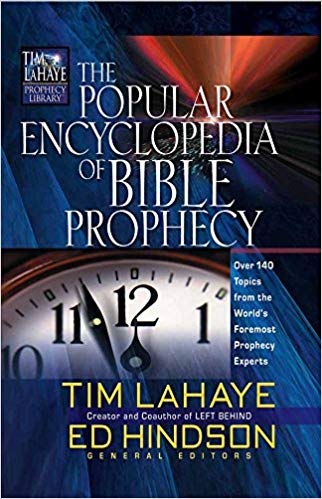ABRAHAMIC COVENANT Part I

THE POPULAR ENCYCLOPEDIA OF BIBLE PROPHECY
ABRAHAMIC COVENANT Part I
The fountainhead of Bible prophecy begins with the Abrahamic covenant (Genesis 12:1- 3,7; 13:14-17; 15:1-21; 17:1-21; 22:15-18). This agreement is the “mother of all redemptive covenants,” and God’s blessings springing
forth from it extend to all mankind throughout the ages.
AN UNCONDITIONAL COVENANT
The Abrahamic covenant is an unconditional agreement or pact in which God reveals His sovereign election of Abraham and his descendants and declares His decrees for them. Arnold Fruchtenbaum (p. 570) explains, “An
unconditional covenant can be defined as a sovereign act of God whereby God unconditionally obligates Himself to bring to pass definite promises, blessings, and conditions for the covenanted people. It is a unilateral
covenant. This type of covenant is characterized by the formula ‘I will’ which declares God’s determination to do exactly as He promised.” The covenant or treaty formats commonly used in the second millennium b.c. highlight the unconditional nature of the Abrahamic covenant. The Bible contains three kinds of covenants: (1) the royal grant treaty, (2) the
suzerain–vassal treaty, and (3) the parity treaty. The royal grant treaty is an unconditional, promissory covenant based on a king’s desire to reward a loyal servant. Examples include the Abrahamic covenant (Genesis 12:1-3; 15), the Davidic covenant (2 Samuel 7:8-17), and the Land of Israel covenant (Deuteronomy 30:1-10).God confirmed and sealed the Abrahamic covenant in Genesis 15 through a unique procedure whereby He put Abram into a deep sleep and bound Himself to keep the covenant regardless of Abraham’s response. Since God is the only one who swore to keep the
covenant, it is clearly an unconditional covenant, based solely on God. Thus, we can be absolutely confident that He will keep it
and bring to pass in history every stipulation of the agreement.
Comparing the Abrahamic covenant with parallel expressions in the ancient Near East shows that it is a royal grant treaty. Genesis 26:5
(nasb) says, “Abraham obeyed me and kept My charge, My commandments, My statutes and My laws.” The term “law” is from the Hebrew
torah, which basically means “to direct, teach, or instruct.” The first verb of Genesis 26:5 is “obeyed,” referring to Abraham’s obedience to sacrifice Isaac (Genesis 22:1-2). This is similar to terminology found at Amarna in
covenant contexts. The second verb is “kept,” paralleling an Assyrian grant in which Ashurbanipal rewarded his servant Bulta with a grant
because he “kept the charge of my kingship.”Both of these verbs indicate a personal relationship rather than a legal code of ethics. Thus, obedience to torah flows from a covenant relationship with God. Abraham’s obedience was not based on legalistic compulsion but rather expressed his
faithfulness to God. “A close examination of the context reveals no covenant stipulations which could be viewed as pure legislative or
ethical codes. What the context does reveal is that God has praised His servant Abraham because he has been faithful to do whatever the Lord instructed him to do. He did it not out of compulsion to legislation, but in a
faith response to the instruction of God” (Dean, p. 13). Royal grant treaties or covenants were unconditional. This point is important for
Bible prophecy because they emphasize that God is obligated to fulfill His promise specifically to the original parties of the covenant. For example, we believe that God must fulfill the promises He made to national Israel
through unconditional covenants such as the Abrahamic, Davidic, and Land covenants. If this is true, then they must be fulfilled literally,
and many aspects of their fulfillment are yet future. Eugene Merrill (p. 26) observes: “As most scholars now recognize, the covenant and its
circumstances were in the form of a royal
(land) grant, a legal arrangement well attested in the ancient New East.…The Abrahamic Covenant…must be viewed as an unconditional
grant made by Yahweh to His servant Abram, a grant that was to serve a specific and irrevocable function.”
THE COVENANTAL STIPULATIONS
The Abrahamic covenant (Genesis 12:1-3) includes three major provisions: (1) land to Abram and Israel, (2) a seed, and (3) a worldwide blessing. Amore complete breakdown of the covenant contains 14 provisions gleaned from the five major passages containing the treaty and its reconfirmations. Fruchtenbaum (p. 570) lists them as follows:
- A great nation was to come out of
Abraham, namely, the nation of Israel
(12:2; 13:16; 15:5; 17:1-2,7; 22:17). - He was promised a land specifically,
the Land of Canaan (12:1,7; 13:14-15,
17; 15:17-21; 17:8). - Abraham himself was to be greatly
blessed (12:2; 22:15-17). - Abraham’s name would be great (12:2).
- Abraham would be a blessing to others
(12:2). - Those who bless will be blessed (12:3).
- Those who curse will be cursed (12:3).
- In Abraham all will ultimately be
blessed, a promise of Gentile blessing
(12:3; 22:18). - Abraham would receive a son through
his wife Sarah (15:1-4; 17:16-21). - His descendants would undergo the
Egyptian bondage (15:13-14). - Other nations as well as Israel would
come forth from Abraham (17:3-4,6;
the Arab states). - His name would be changed from
Abram to Abraham (17:5). - Sarai’s name was to be changed to Sarah
(17:15). - There was to be a token of the covenant—
circumcision (17:9-14).

